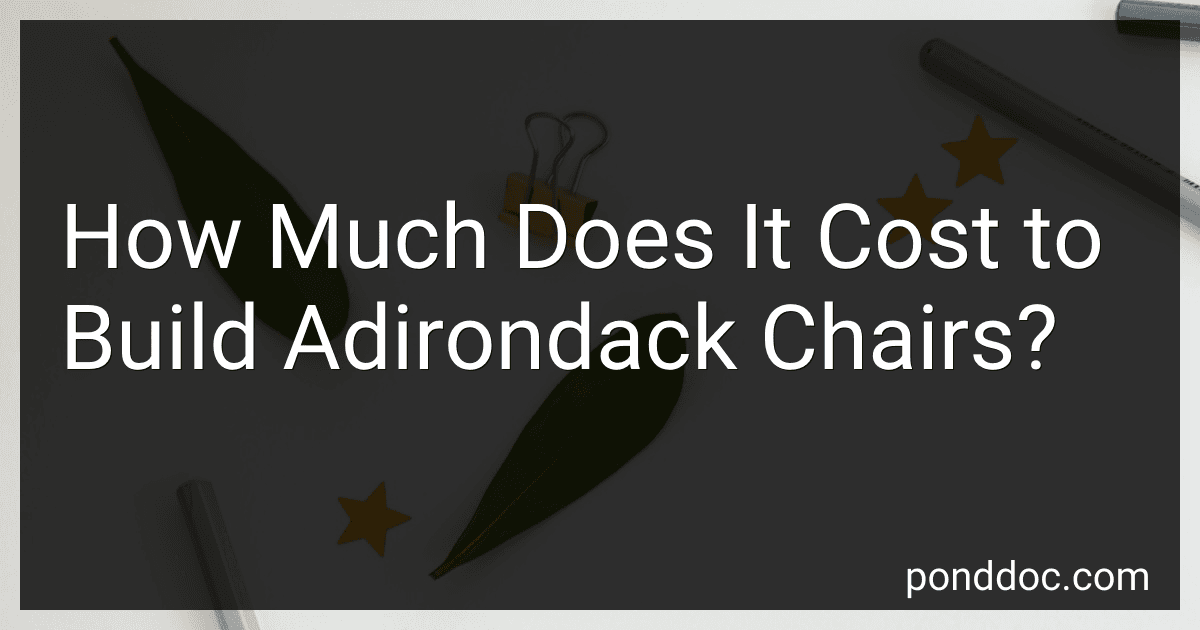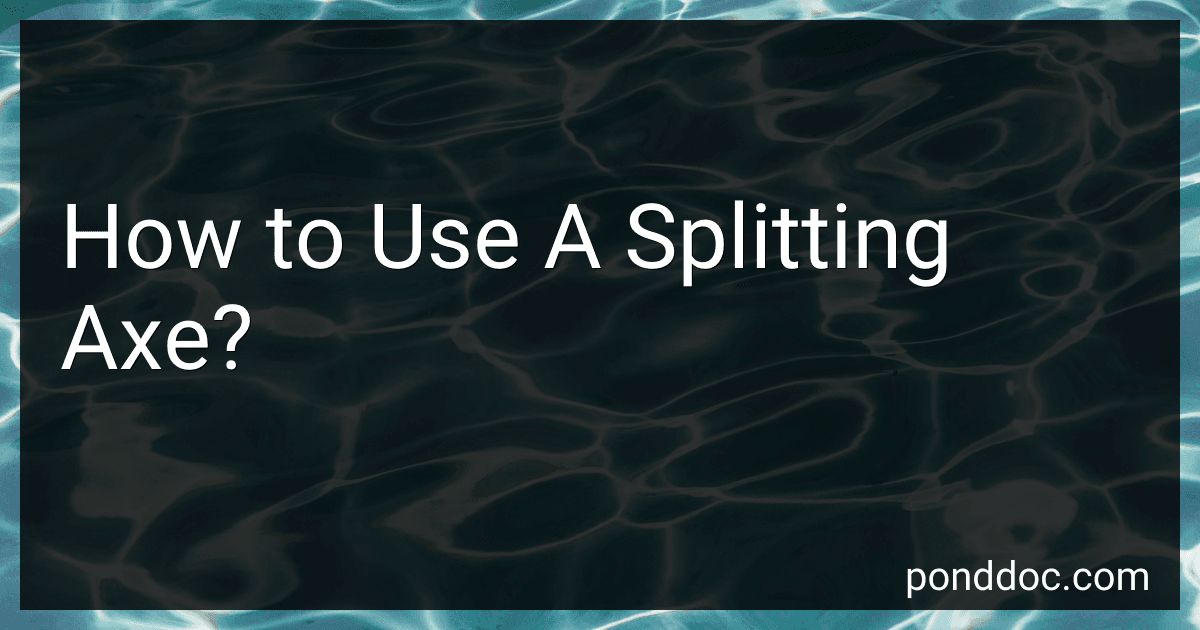ponddoc.com
-
 4 min readGarden statues are made from a variety of materials, each offering unique features and appearances. Some common materials used in the making of garden statues include:Stone: Garden statues made from stone can be carved from different types of stone, such as marble, limestone, or granite. These statues have a timeless and elegant appeal, are durable, and can withstand various weather conditions. Concrete: Concrete statues are typically made by pouring cement into a mold.
4 min readGarden statues are made from a variety of materials, each offering unique features and appearances. Some common materials used in the making of garden statues include:Stone: Garden statues made from stone can be carved from different types of stone, such as marble, limestone, or granite. These statues have a timeless and elegant appeal, are durable, and can withstand various weather conditions. Concrete: Concrete statues are typically made by pouring cement into a mold.
-
 11 min readTo paint an outdoor garden statue, you will need the following materials: primer, paintbrushes, acrylic or spray paint (suitable for outdoor use), sandpaper, and a sealant (optional). Here's a step-by-step guide to painting your outdoor garden statue:Prepare the statue: Start by cleaning the statue thoroughly to remove any dirt, dust, or debris. Use a mild detergent and water, and scrub gently with a soft brush or sponge. Rinse it with clean water and let it dry completely.
11 min readTo paint an outdoor garden statue, you will need the following materials: primer, paintbrushes, acrylic or spray paint (suitable for outdoor use), sandpaper, and a sealant (optional). Here's a step-by-step guide to painting your outdoor garden statue:Prepare the statue: Start by cleaning the statue thoroughly to remove any dirt, dust, or debris. Use a mild detergent and water, and scrub gently with a soft brush or sponge. Rinse it with clean water and let it dry completely.
-
 5 min readWhen deciding where to place garden statues, it is important to consider several factors to ensure they enhance the overall aesthetic appeal of your outdoor space. Here are a few considerations to keep in mind:Focal Points: Choose a prominent spot in your garden where the statue can act as a focal point. This could be an area where several pathways intersect or a place that is easily visible from various angles.
5 min readWhen deciding where to place garden statues, it is important to consider several factors to ensure they enhance the overall aesthetic appeal of your outdoor space. Here are a few considerations to keep in mind:Focal Points: Choose a prominent spot in your garden where the statue can act as a focal point. This could be an area where several pathways intersect or a place that is easily visible from various angles.
-
 8 min readInstalling a garden statue adds a touch of beauty and elegance to any outdoor space. Whether you've recently purchased a statue or are planning to install one, the process can be quite straightforward if you follow a few steps. Here is a general guide on how to install a garden statue:Choose the location: Select a suitable spot in your garden where the statue will be visible and enhance the overall aesthetics.
8 min readInstalling a garden statue adds a touch of beauty and elegance to any outdoor space. Whether you've recently purchased a statue or are planning to install one, the process can be quite straightforward if you follow a few steps. Here is a general guide on how to install a garden statue:Choose the location: Select a suitable spot in your garden where the statue will be visible and enhance the overall aesthetics.
-
 6 min readGarden statues can be made from a variety of materials, each with its own unique properties and characteristics. Some of the common materials used for garden statues include:Stone: Stone sculptures are classic and timeless. They can be carved from marble, granite, limestone, or other natural stones. Stone statues are durable, weather-resistant, and can withstand the elements. They often have a textured and earthy appearance.
6 min readGarden statues can be made from a variety of materials, each with its own unique properties and characteristics. Some of the common materials used for garden statues include:Stone: Stone sculptures are classic and timeless. They can be carved from marble, granite, limestone, or other natural stones. Stone statues are durable, weather-resistant, and can withstand the elements. They often have a textured and earthy appearance.
-
 6 min readWhen it comes to splitting wood, the sharpness of your axe plays a crucial role in making the task efficient and safe. The level of sharpness required for a splitting axe depends on various factors, including the type of wood you are splitting, the size of the logs, and your personal preferences.Generally, a splitting axe should be sharp enough to penetrate the wood easily without getting stuck. However, it should not be as sharp as a felling axe or a chopping axe used for cutting down trees.
6 min readWhen it comes to splitting wood, the sharpness of your axe plays a crucial role in making the task efficient and safe. The level of sharpness required for a splitting axe depends on various factors, including the type of wood you are splitting, the size of the logs, and your personal preferences.Generally, a splitting axe should be sharp enough to penetrate the wood easily without getting stuck. However, it should not be as sharp as a felling axe or a chopping axe used for cutting down trees.
-
 8 min readBuilding Adirondack chairs can be a fulfilling DIY project that adds comfort and style to your outdoor space. When considering the cost of building these chairs, there are several factors to keep in mind.Material Costs: Adirondack chairs can be constructed using various materials such as wood, plastic, or composite. Wood is a popular choice for its aesthetic appeal and reliability. The cost of wood can vary depending on the type and quality you choose, with cedar and pine being common options.
8 min readBuilding Adirondack chairs can be a fulfilling DIY project that adds comfort and style to your outdoor space. When considering the cost of building these chairs, there are several factors to keep in mind.Material Costs: Adirondack chairs can be constructed using various materials such as wood, plastic, or composite. Wood is a popular choice for its aesthetic appeal and reliability. The cost of wood can vary depending on the type and quality you choose, with cedar and pine being common options.
-
 4 min readA splitting axe is a type of axe that is designed specifically for splitting logs and wood. It features a heavy head and a long handle, usually measuring around 28 to 36 inches, providing leverage and power during the splitting process. The head of a splitting axe is wider and thicker than that of a chopping axe, typically weighing around 4 to 5 pounds.
4 min readA splitting axe is a type of axe that is designed specifically for splitting logs and wood. It features a heavy head and a long handle, usually measuring around 28 to 36 inches, providing leverage and power during the splitting process. The head of a splitting axe is wider and thicker than that of a chopping axe, typically weighing around 4 to 5 pounds.
-
 4 min readDetermining how much paint you need for an Adirondack chair depends on various factors such as the chair's size, the type of paint used, and the desired number of coats. Generally, you will need to cover the entire chair, including the backrest, seat, arms, and legs.The amount of paint required for an Adirondack chair can be estimated by considering the chair's surface area. You will need to calculate the surface area of each component of the chair and add them together for a total.
4 min readDetermining how much paint you need for an Adirondack chair depends on various factors such as the chair's size, the type of paint used, and the desired number of coats. Generally, you will need to cover the entire chair, including the backrest, seat, arms, and legs.The amount of paint required for an Adirondack chair can be estimated by considering the chair's surface area. You will need to calculate the surface area of each component of the chair and add them together for a total.
-
 7 min readUsing a splitting axe requires proper technique and caution to ensure safety and maximize efficiency. Here are some important points to keep in mind:Choose the right axe: Select a splitting axe that is appropriate for your strength and size. It should have a long handle, typically around 36 inches, for maximum leverage and force. Wear appropriate safety gear: Always wear protective gear including safety glasses, gloves, and sturdy footwear.
7 min readUsing a splitting axe requires proper technique and caution to ensure safety and maximize efficiency. Here are some important points to keep in mind:Choose the right axe: Select a splitting axe that is appropriate for your strength and size. It should have a long handle, typically around 36 inches, for maximum leverage and force. Wear appropriate safety gear: Always wear protective gear including safety glasses, gloves, and sturdy footwear.
-
 6 min readWhen building an Adirondack chair, it is important to determine the amount of wood needed for the project. The exact amount of wood required may vary based on the specific design and dimensions of the chair, but here are some general guidelines to consider.Firstly, the main components of an Adirondack chair typically include a seat, backrest, armrests, and legs. The seat and backrest are often made up of several slats that are attached together.
6 min readWhen building an Adirondack chair, it is important to determine the amount of wood needed for the project. The exact amount of wood required may vary based on the specific design and dimensions of the chair, but here are some general guidelines to consider.Firstly, the main components of an Adirondack chair typically include a seat, backrest, armrests, and legs. The seat and backrest are often made up of several slats that are attached together.